Welcome to the falcon hospital of Qatar
- Published
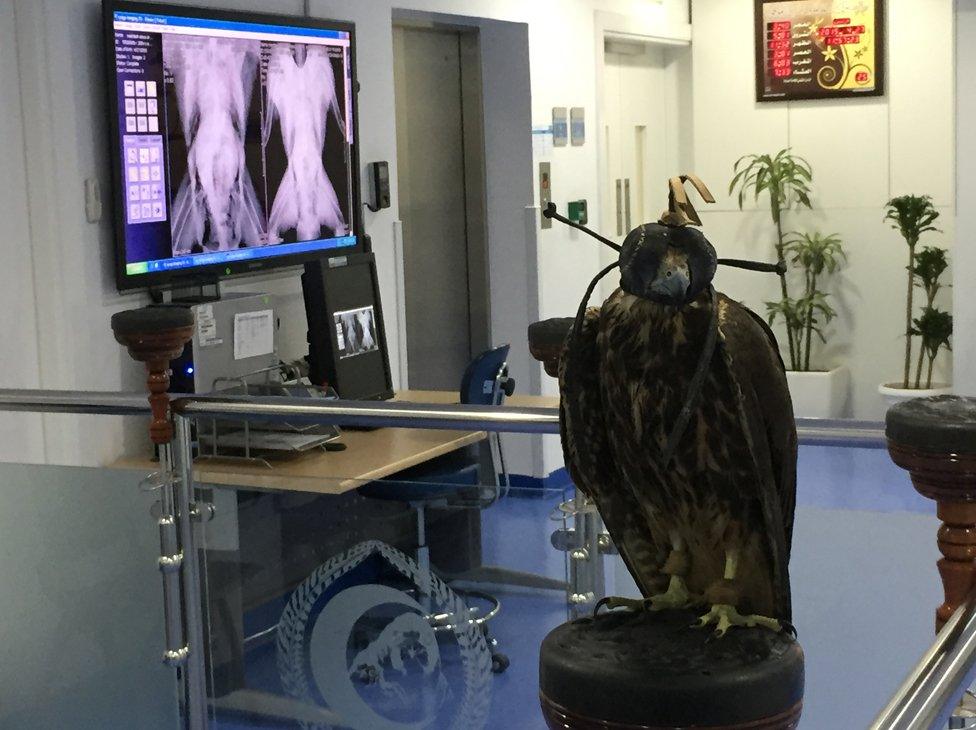
Hunting with falcons is a popular sport in the Gulf - and Qatar's capital city, Doha, has a specialist hospital where injured birds are treated.
If you're not ready for it, it could be an alarming sight.
The first thing that greets me in the reception is a hooded falcon standing to attention on a perch. Behind the bird is a large television screen showing X-ray images of what could be mistaken for a scrawny supermarket chicken. Not much breast on that.
Medical staff in smart blue scrubs bustle about the place impressively, consulting charts and comparing notes on patients. Whichever way you look in this immaculate, air-conditioned building, you see state-of-the-art equipment. And the occasional feathered predator in need of medical attention.
Welcome to Souq Waqif Falcon Hospital in the Qatari capital of Doha. This extraordinary institution, with its 30 vets and staff from right across the Muslim world, from Pakistan to Iraq, caters to the needs of falcons and their deep-pocketed owners, passionate players in this ancient sport of kings.
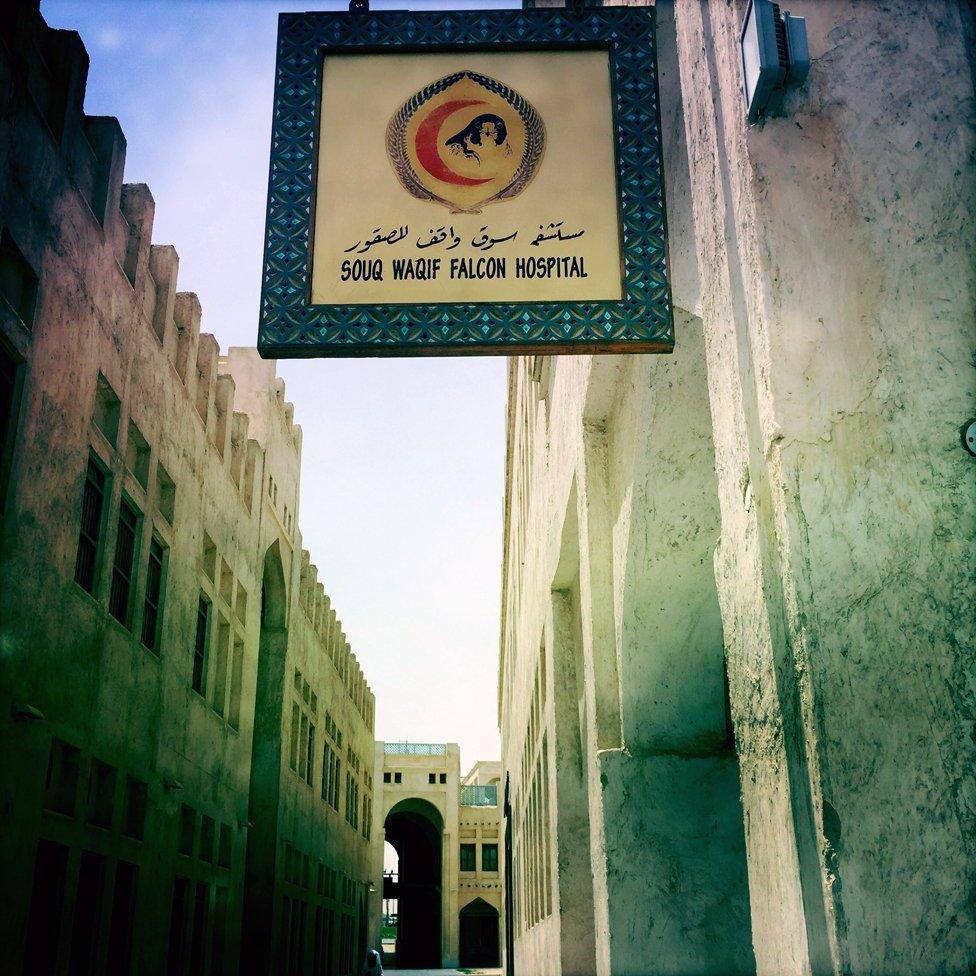
Falconry is big in the Gulf and with Qatar emerging as a fantastically wealthy state, rich in natural gas, perhaps it's no surprise that the facilities here are so lavish.
"Falcons are very brave birds and will attack anything so sometimes they come in to us damaged," says Mohammed, the medical engineer who proudly shows me around.
If your falcon is missing a feather or two after a nasty scrap with a houbara bustard, not a problem. The hospital has a well-stocked feather bank. A broken wing? Whisk the bird off to orthopaedic surgery. Digestion issues? Time for a fecal and blood check. If that doesn't do the trick, perhaps pharmaceutical and toxicology analysis is the answer.
We pass one endoscopy station where a bird under anaesthetic is being examined with a tube down its throat. A micro camera relays images of the falcon's insides on to a large monitor.
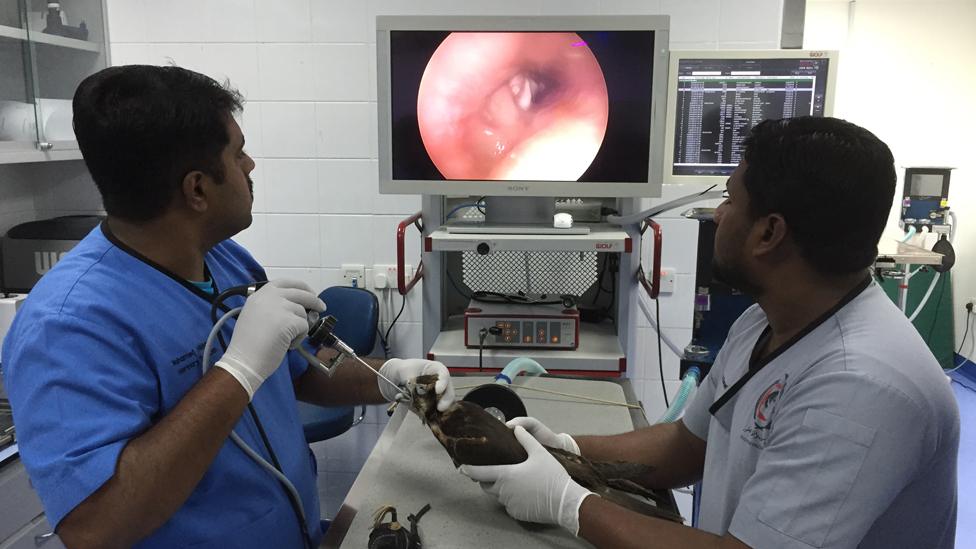
All this sort of treatment must come at a fearsome price, I suggest. I'm completely wrong. A check-up costs 100 riyals - less than £20 ($30). An X-ray will cost 20 riyals - less than £4 ($6).
"We get people coming from Saudi Arabia, Kuwait and all over the Gulf bringing their falcons in here," says Mohammed. No wonder when the treatment is so heavily subsidised.
The falcon hospital is just one of many signs that this once sleepy village of pearl divers and fishermen has become an astonishingly rich Arab city.
Between my first visit in the late 90s and my second in 2014, an entire new city has soared into the skyline of once empty West Bay. Skyscraper after skyscraper, including the beautiful Doha Tower, creation of the French architect Jean Nouvel. "It's as though they've built Singapore or Hong Kong in a decade," says an expat.
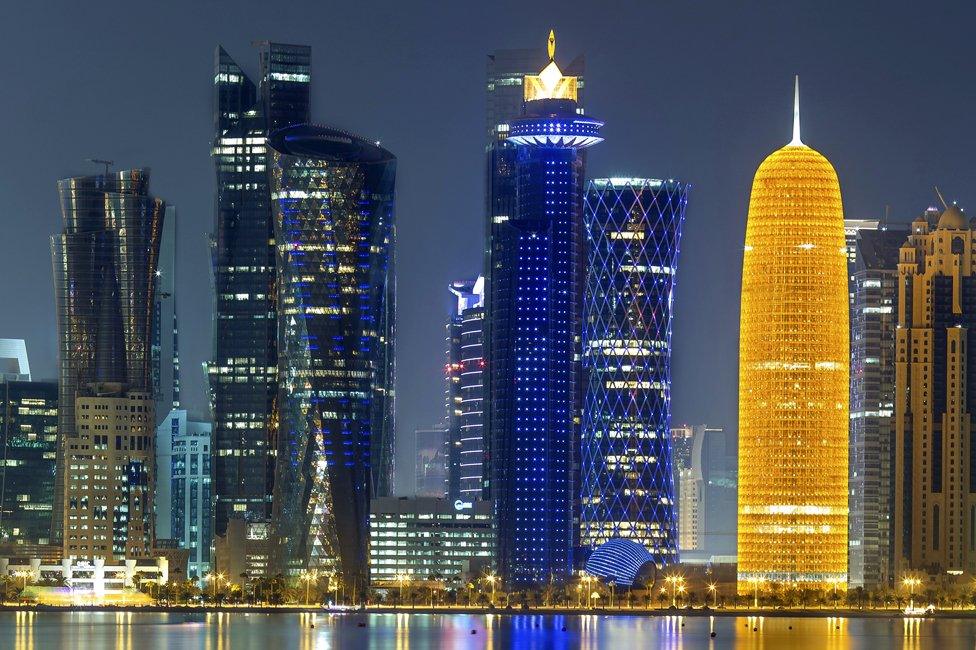
The Doha Tower is illuminated in yellow on the right. Copyright: Thinkstock
If the falcon hospital points towards the future of Doha, the private pearl collection of the businessman Hussein al Fardan, said to be the largest collection in the world, pays heritage to the old pearl diving tradition, which came to an end in the 1950s.
There are pearls of all shapes, sizes and colours here, including the world's largest, a 276-carat whopper fashioned into a ring. Most of these pieces are not for sale but the price tags for those collector pieces that are available are not for the faint-hearted. I offer quiet thanks my wife is not with me to see these amazingly opulent jewels.
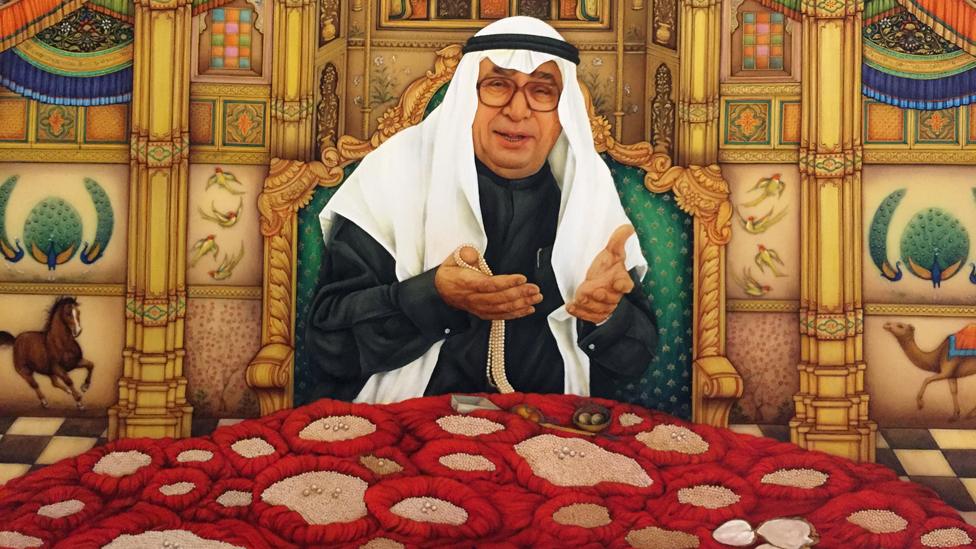
Hussein al Fardan with his pearl collection
No less impressive in the annals of conspicuous consumption is the private carpet collection of Sheikh Faisal bin Qasim al Thani, a billionaire businessman and member of the royal family.
In one of the sheikh's many Doha tower blocks what used to be a hotel parking lot is now given over to hundreds of fine carpets, mostly antique Persians. This is in addition to the sheikh's huge museum outside Doha, a must-see, highly eclectic collection of everything from antique coins and elderly dhows to Islamic art and American sports cars. "He just keeps on buying," says a Qatari. These days you could say that of Qatar.
We say our goodbyes in the Souq Waqif Falcon Hospital. "Some of the owners really love their birds," our guide says. "They hold them close to their chests, they kiss them and look after them like a member of the family."
What happens to those falcons the vets are unable to save, which have gone to chase bustards in the great hunting skies of heaven? "Do they bury them?" I ask. Mohammed shakes his head and says, "No - we have an incinerator upstairs."
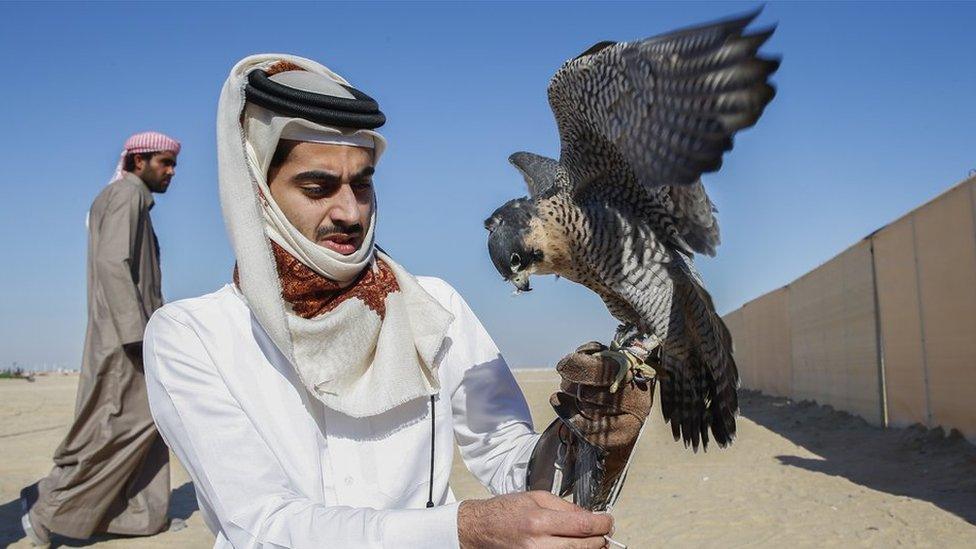
A Qatari falconer and his bird. Copyright: EPA
How to listen to From Our Own Correspondent, external:
BBC Radio 4: Thursdays at 11:00 BST and Saturdays at 11:30 BST
Listen online or download the podcast.
BBC World Service: At weekends - see World Service programme schedule or listen online.
Subscribe to the BBC News Magazine's email newsletter, external to get articles sent to your inbox.